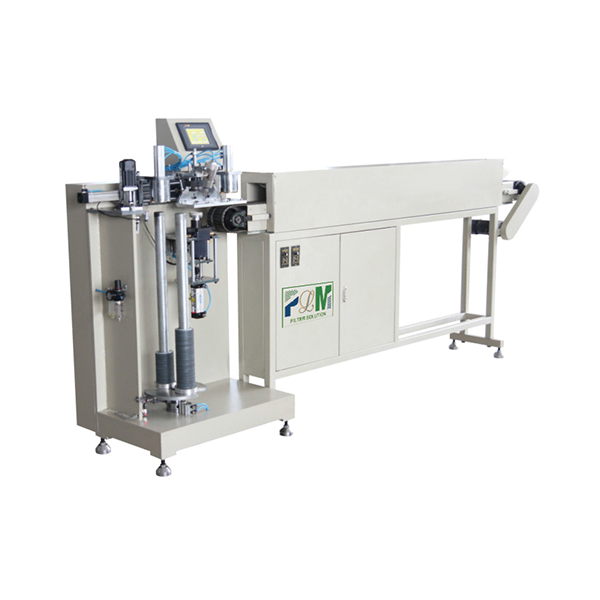dec . 24, 2024 10:55 Back to list
spin-on oil filter production line
The Production Line of Spin-On Oil Filters An In-Depth Overview
In the ever-evolving automotive industry, the importance of high-quality components cannot be emphasized enough. Among these, oil filters play a critical role in maintaining engine health and performance. One of the most popular types of oil filters is the spin-on oil filter, known for its convenience and effectiveness. This article delves into the production line of spin-on oil filters, highlighting the processes, technology, and quality control measures involved in their manufacture.
Understanding Spin-On Oil Filters
Spin-on oil filters are designed for easy installation and replacement. They come as a complete unit, which allows for quick servicing of the engine. The filter consists of a canister, filter media, and an anti-drainback valve, often integrated into a single assembly. The need for efficient and reliable oil filtration in modern vehicles has driven the demand for high-quality spin-on oil filters, necessitating a well-structured production process.
Overview of the Production Line
The production line for spin-on oil filters can be broadly divided into several key stages material preparation, component manufacturing, assembly, quality inspection, and packaging.
1. Material Preparation The production process begins with the procurement of raw materials, including metal sheets for the canister and filter media made from cellulose or synthetic fibers. These materials must meet specific industry standards for durability and filtration efficiency. The metal sheets are cut to size and treated to prevent corrosion, ensuring longevity.
spin-on oil filter production line

2. Component Manufacturing In this stage, the prepped materials are transformed into filter components. The metal canisters are formed using stamping and welding techniques. Precision engineering is critical here, as the integrity of the canister determines how well it will seal and operate under pressure.
Concurrently, the filter media undergoes a series of processes to enhance its filtering capabilities. These activities include pleating, which increases the surface area available for filtration, and the application of additives to improve dirt-holding capacity. Other components such as gaskets and springs are also produced during this phase, ensuring they meet specification standards.
3. Assembly Once all components are produced, they move to the assembly line. Automation plays a pivotal role in this stage, with machines designed to efficiently assemble the filters. Workers are often stationed at critical points to oversee the assembly process and ensure precision. The filter media is placed into the canister along with the anti-drainback valve and any necessary gaskets. This step culminates in sealing the canister to form a complete filter ready for installation.
4. Quality Inspection Quality control is vital in producing spin-on oil filters, as any defects could lead to engine damage. After assembly, each filter undergoes rigorous testing. These tests include pressure testing, leakage tests, and filtration performance checks. Advanced technologies such as computer-aided inspection and automated testing circuits are utilized to ensure that every filter meets or exceeds industry standards. Any filters that do not pass inspection are either reprocessed or scrapped, thus maintaining the integrity of the final product.
5. Packaging Once the filters have passed quality checks, they are prepared for packaging. Each unit is clearly labeled with essential information, including part numbers, manufacturer details, and installation instructions. Packaging is designed to protect the filters during transportation and storage while also being easy for consumers to handle and identify.
Conclusion
The production line for spin-on oil filters is a sophisticated system that combines advanced technology with meticulous craftsmanship. The emphasis on quality at every stage ensures that the final product meets the high standards required for modern automotive applications. As vehicles become increasingly complex and engine performance demands rise, the significance of reliable oil filtration systems will only grow. The continuous improvement of production methods will play a key role in supporting the automotive industry while ensuring that consumers can trust the components that keep their engines running smoothly.
-
Premium OEM Snus Paper Supplier Custom Snus Filter & Packing Papers for Your Brand
NewsJul.05,2025
-
CE Certification PLJL-6 Six-Station Seal Leakage Tester for Spin-On Filter – High Efficiency & Reliability
NewsJul.05,2025
-
OEM PLXB-1 PU Pack Trimming Machine - Precision Cutting, High Efficiency, Reliable Quality
NewsJul.05,2025
-
Premium Engine Oil Filter Supplier & Exporter Reliable Engine Oil Filter Service
NewsJul.04,2025
-
Wholesale PLRZ-1000N Full-Auto Hot Melt Filter Paper Bonding Machine - High Efficiency & Precision
NewsJul.04,2025
-
OEM PLXB-1 PU Pack Trimming Machine - High Precision, Durable, Cost-Effective Solutions
NewsJun.10,2025
